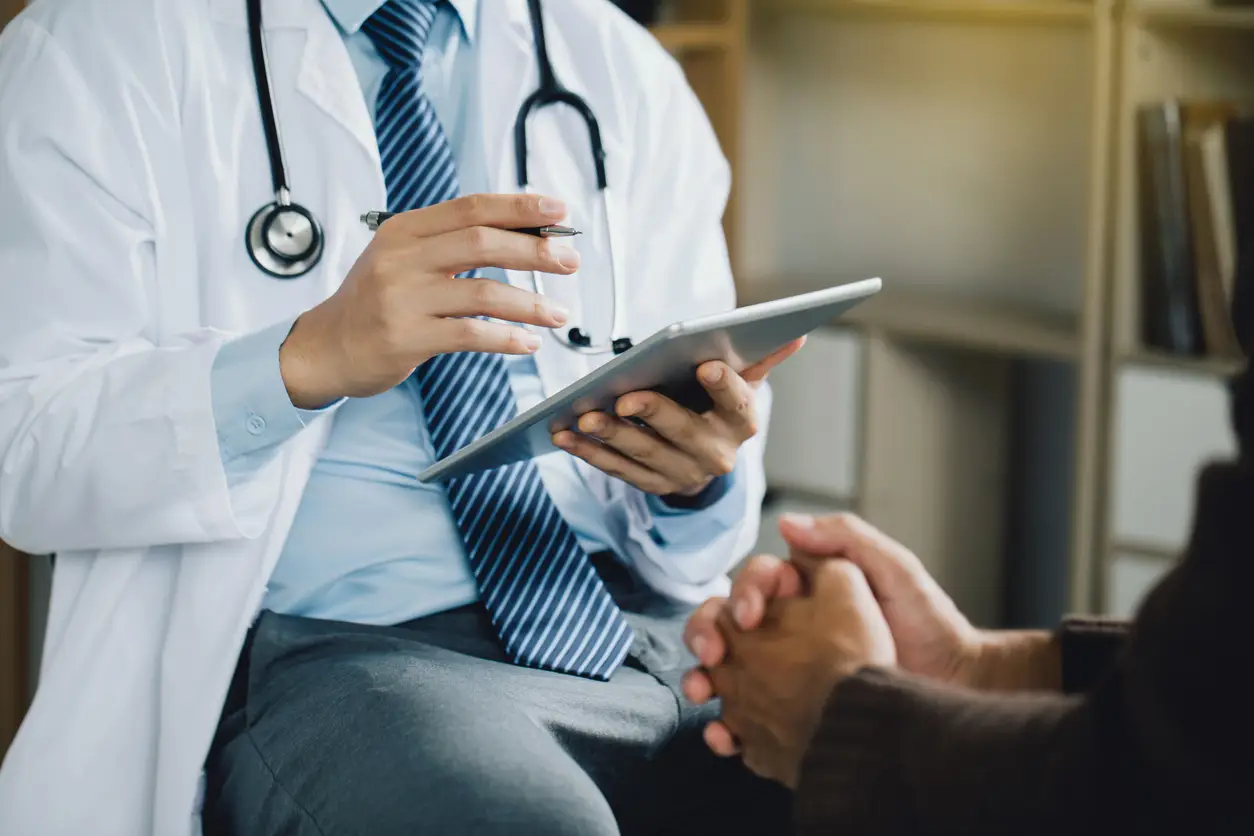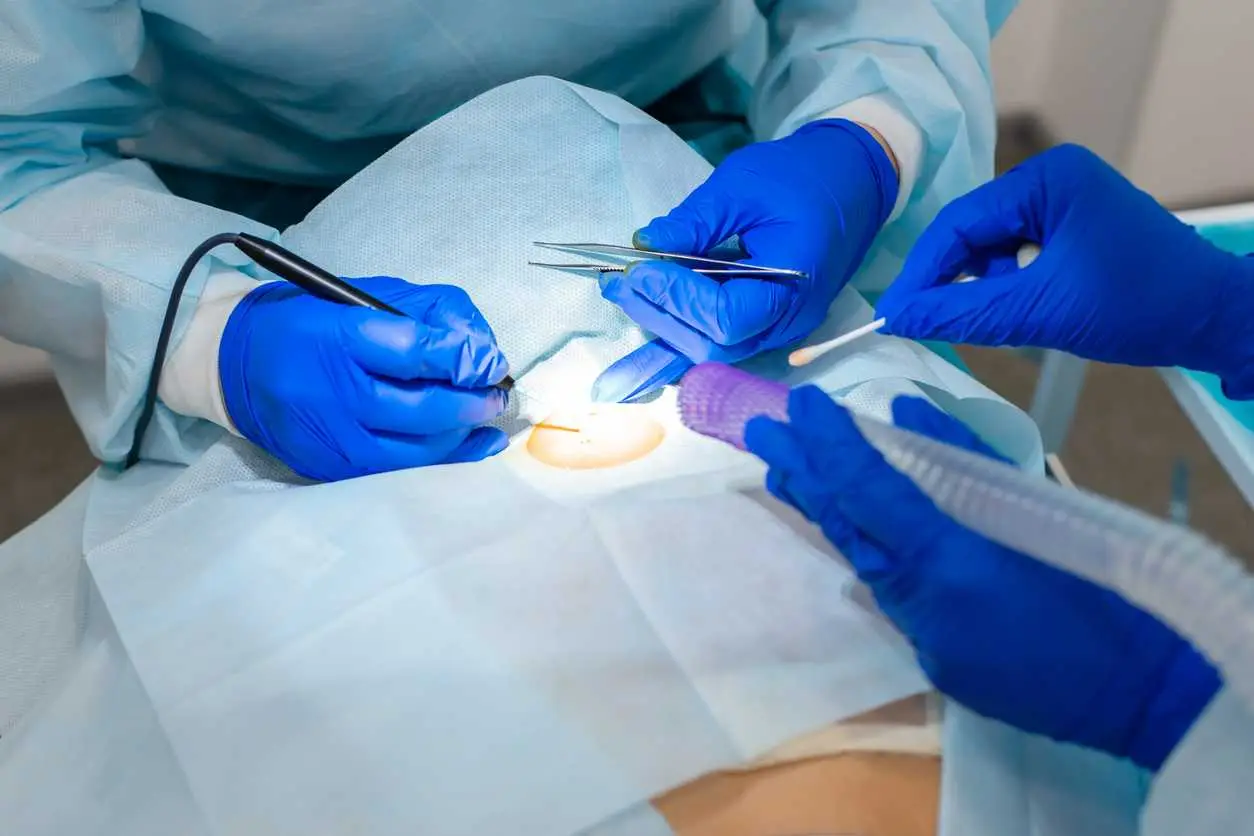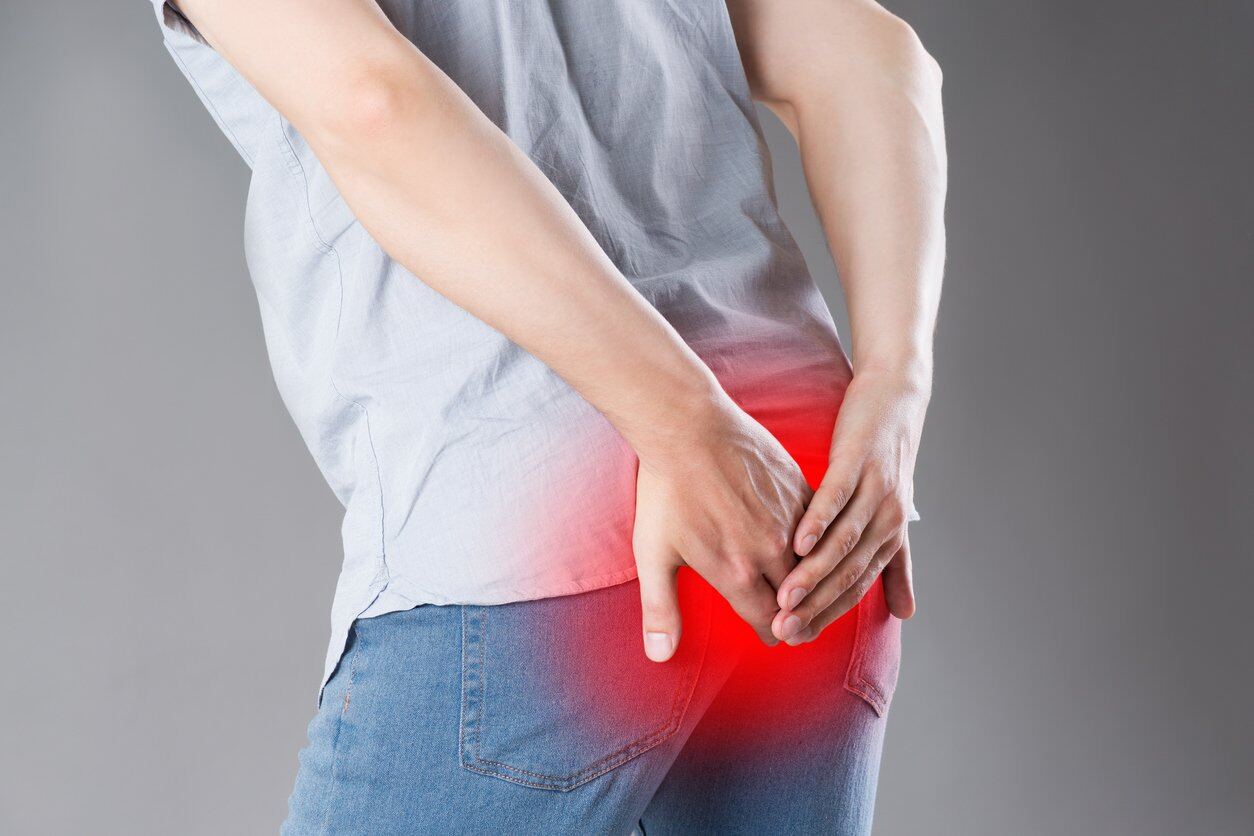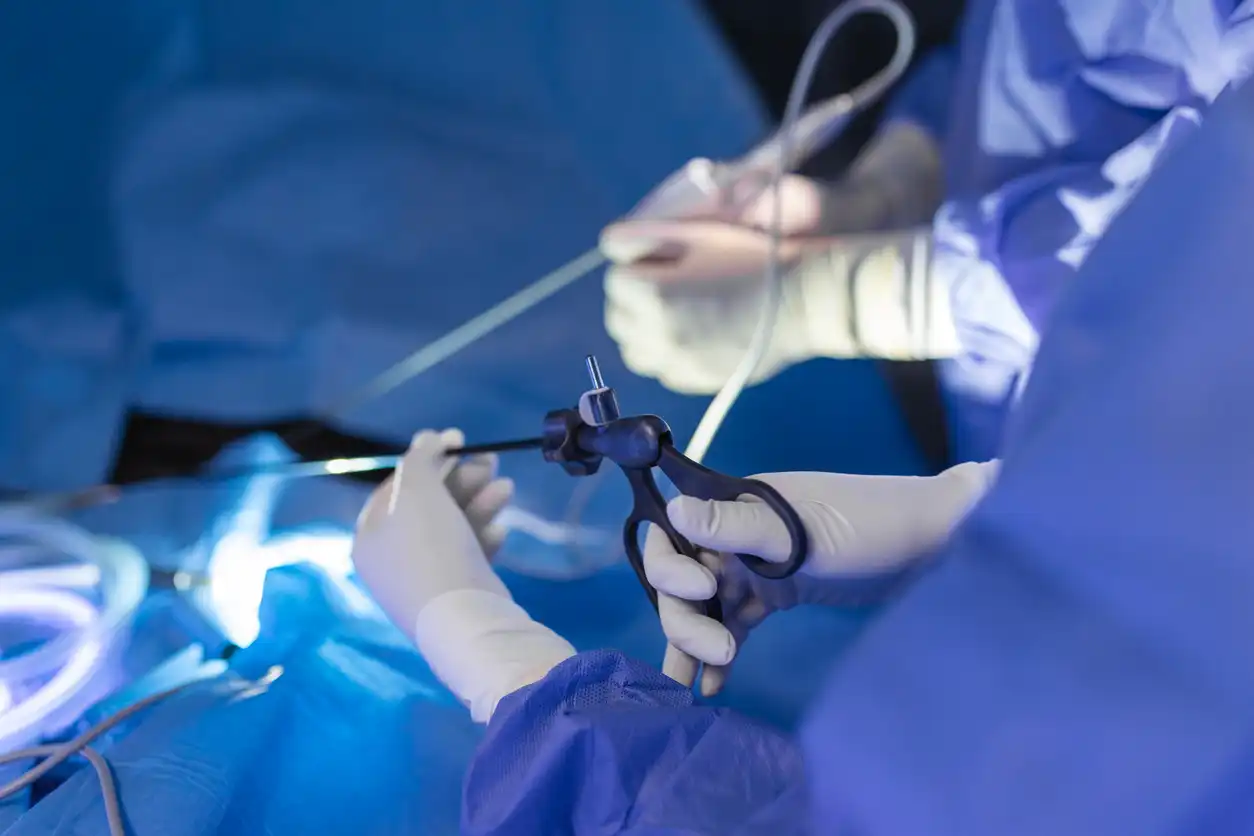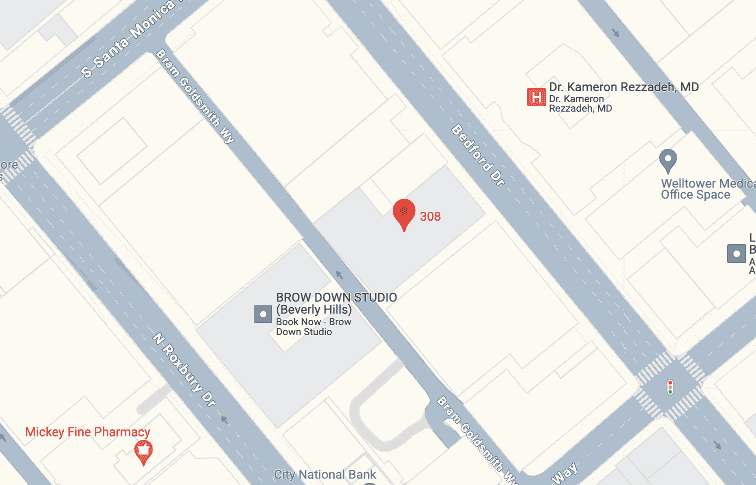What Is Pilonidal Sinus?
Many people suffer from pilonidal sinus disease (PNS), with research showing it is most common amongst men and young adults. Pilonidal sinus disease can affect your daily routine, making it uncomfortable to sit, go to the restroom, and even negatively affects your self esteem and confidence. While the reason behind the skin disease or why they develop is not completely understood, researchers believe there is a correlation between hormones, hair growth, and physical activity. It is necessary one understands which preventative measures to take and what symptoms indicate the worsening of the pilonidal sinus. That being said, let’s have a read.
What is a pilonidal sinus, and why do they form?
Researchers cannot pinpoint one thing that causes pilonidal sinus disease. Instead, they believe the skin condition is a result of a combination of things such as changing hormones (as they commonly occur after puberty), hair growth and the quantity of hair, and constant friction on the body from either tight clothes or prolonged sitting. Therefore, if your job or personal hobbies require you to sit for prolonged periods of time, you are at higher risk of developing a pilonidal sinus.
A pilonidal (pie-low-NIE-dul) sinus is an abnormal tract or tunnel that develops under the skin, typically located at the crease of the buttocks, but can develop anywhere on the body where consistent pressure and friction are applied. When hair punctures the skin through constant pressure or friction, the body recognizes that hair as a potential threat and creates a sack around it, forming either a cyst or abscess. Once this happens, the sack is likely to fill up with hair, dirt, and fluid; if infected, the sack could also fill with pus.
Is a pilonidal sinus serious?
More often than not, pilonidal sinus disease is a harmless but bothersome skin condition. Due to the nature and location of most normal pilonidal sinuses, many find it embarrassing and avoid discussing their symptoms with medical providers; this should never be the case! Pilonidal sinuses are not contagious or life-threatening but have the capacity to become infected which may necessitate urgent medical intervention. An infected pilonidal sinus is hard to miss and can be identified easily. Common symptoms of an infected pilonidal sinus: red, swollen, and can ooze blood and pus. At any sign of an infected pilonidal sinus, contact your medical provider.
What a pilonidal sinus looks like and how to recognize symptoms
Symptoms of a pilonidal sinus are not always noticeable right off the bat. If noticed at the beginning stages of an uninfected pilonidal sinus, you will likely find a small depression on the surface of the skin. If infected, the pilonidal sinus will have developed into a cyst or abscess. How to identify an infected pilonidal sinus is quite straightforward. In the affected area –the top crease of the buttocks, where they divide– you are likely to find a swollen and painful area of tissue.
At-home remedies for pilonidal sinus disease
A pilonidal sinus is nothing short of painful and –let’s face it– can become a nuisance. But what if the sinus is not infected, and you would rather try at-home remedies before visiting a doctor’s office? Here is where you would adopt a “watch and wait” approach. During this time, you can exercise some of the following practices to can help prevent infection or any further complications:
While at-home remedies provide relief, they do not treat or address the chief issue, the sinus (the sack of tissue where debris builds up). The only way to cure a pilonidal sinus is through surgical intervention.
When to seek medical attention
Please consult a medical provider if you are experiencing the following symptoms as they are an indication of a potential infection:
Common medical treatments for pilonidal sinus disease
Some factors medical providers take into account when considering which treatments are best for treating your specific case of pilonidal sinus are the symptoms you are experiencing, the size of the sinus or sinuses, and whether it is your first or a recurrent sinus. Depending on the severity of the pilonidal sinus, and in some cases multiple sinuses, the medical provider may choose one, or a combination of treatments.
- Conservative:
If the pilonidal cyst is diagnosed as mild and caught early on, the medical provider might choose a more conservative approach of doing nothing. Many patients will have their pilondial sinuses become dormant and asymptomatic. If this is the case, treatment is not necessary. - Phenol injection:
This treatment applies phenol into the cyst, which causes it to eventually harden and close all together; before injecting this chemical compound to the cyst, the medical provider will likely use a local anesthetic. Success rates for phenol injection is estimated at 90%. - Lancing and drainage:
Lancing and draining are procedures used to treat an infected cyst. However, it is key to understand that these treat the infection, not the cyst. A follow up, and more definitive procedure will have to be done for treating the cyst, once the infection is controlled. Like most procedures, the medical provider will start by numbing the area with local anesthetic. They will then create an incision with a scalpel, allowing the abscess to drain itself of the pus and debris trapped inside the sack. - Wide excision and open healing:
A wide excision is an operation used to treat larger or recurrent pilonidal sinus infections. Wide excision treats the skin condition by cutting out the sinus and some of the surrounding skin. The medical provider will then leave the wound to “open heal”; open healing is a phrase used for cuts that are not closed with stitches, instead packed with sterile dressing, allowing the wound to heal from the inside out. This is the most common procedure performed in the United States. Recurrence rates for open wounds is about 15-20%, and typical healing time averages between 2-6 months. - Excision and wound closure:
These are performed under anesthesia. The pilonidal sinus is fully removed, and the wound is closed by the use of a flap. There are various flap techniques, the gold standard considered to be the Rhomboid Rotatinal Flap. Recurrence rates with flap surgeries are the lowest, estimated at about 4-5%. - Laser ablation:
There may be multiple holes within a sinus. A laser probe is placed into the cavity and the sinus is ablated with laser. A few benefits of an laser ablation: it is a less invasive procedure as there is no need for a major excision, it is an outpatient procedure. Success rate for laser is estimated at about 80% (that is, 8 in 10 patients will need no further intervention). - Gips Procedure:
With a Gips procedure, multiple small holes are created along the length of the cyst and the cyst is cleaned out. By creating multiple drainage sites, it allows the cyst to heal better after debridement. Success rates are reported at about 85% with a Gips procedure.
It is important to follow the provider’s after care instructions for any treatment. Some recommended practices after treatments include: keeping the affected area clean, wearing loose fitting or cotton underwear, and eating plenty of fiber to make trips to the bathroom easier and avoid straining. Some after treatment no, no’s: do not bathe the wound in water, do not ride a bike for 6-8 weeks after treatment, and avoid any strenuous activities for a week or so post treatment.
Curious about when you can go back to work? It is all dependent on the procedure you had, how quickly you recover, and what type of job you have. Most people are cleared to return to work after two weeks of recovery and rest. If you have a desk job, are a taxi or truck driver, or are required to sit for long periods of time, disclose this with your medical provider and discuss best practice as you might have a longer recovery time to avoid irritation or flare ups. They might even suggest alternatives such as a standing desk, or a donut pillow cushion, wherever possible.
Potential complications with pilonidal sinus disease
The main compilations that are associated with pilonidal sinus disease are the high risk of wound infection, and recurrent or chronic pilonidal sinuses, even after surgical intervention. Symptoms of an infected wound:
For help with “What is a Pilonidal Sinus,” please contact Dr. Allen Kamrava today
Dr. Kamrava is a colorectal surgeon offering all the various treatment options for pilonidal surgery and in discussion with you can plan for which best suits your needs and lifestyle. A board-certified surgeon in general and colorectal surgery, Dr. Kamrava has years of experience under his belt and has helped his patients with colon cancer, hemorrhoids, anal fissures, pilonidal sinus and many other types of colorectal diseases. Dr. Kamrava is dedicated to his patients and demonstrates it through his use of up-to-date treatment modalities, compassionate care, and most importantly life-changing results.
If you are currently suffering from any colorectal conditions, contact us at (424)279-8222 to schedule an appointment today. Let us ease your pain and worries regarding potential pilonidal sinuses.
Meet Dr. Kamrava
MD | MBA | Board Certified General & Colorectal Surgeon
When it comes to treating colorectal conditions, few surgeons are as experienced or as dedicated to their craft as Dr. Allen Kamrava. Fellowship trained and Board-certified in colorectal and general surgery, Dr. Kamrava has years of experience treating various colorectal conditions, including colon cancer, anal fissures, fistulas, hemorrhoids, and more, providing patients with compassionate care and life-changing results. Along with his intensive experience in the colorectal field, he is an associate teaching faculty in the Department of Colon and Rectal surgery at Cedars Sinai Medical Center, which in 2022 US news ranked as the number one center in California for Colon and rectal Surgery, and ranked second in the nation.
With years of experience, access to some of the most cutting-edge procedures available, and a strong sense of dedication to patients, Dr. Kamrava is the premier colorectal surgeon in Los Angeles. Schedule an appointment today by calling (310) 439-9914.

SUCCESS STORIES
I visited Dr. Kamrava for the Pilonidal cyst that my son had. He was the only doctor providing laser treatment for Pilonidal Cysts at the time. He did an excellent job of presenting our options and the pros and cons of this laser therapy. Despite the fact that we lived quite far away, we ultimately made the decision to make a trip to the office based on all the information that Dr. Kamrava gave us. The procedure went quite well, with a quick recovery and no follow-ups. Excellent experience, if necessary, we wouldn’t think twice about using Dr. Kamrava’s services again.
For more than ten years, I had been having pain in my lower back and was scared to seek medical attention. I looked up Dr. Kamrava’s office online and, after reading the positive testimonials, decided to contact them. I was immediately connected and at ease throughout the initial consultation on the phone. I made an appointment for the following week at a time that was convenient for me. Major plus. I was so anxious during the week that I waited. My mind raced with ideas about how serious the problem I had been avoiding had become.
I met with the doctor in about five minutes, and I was relieved. He was very friendly and professional, and I didn’t feel at all uneasy with him. After he listened to my problem (love that), he commented on what he thought might be happening. After that, he performed a check-up on me, and it was discovered that I was alright! My “main” issue (in my thoughts), which had been bothering me for years, had resolved itself. My shoulders felt like they were being lifted off a million tons. I had faith in the doctor because I knew he had a lot of experience and he is trustworthy.
Overall, I’m delighted to find Dr. Kamrava’s office. All went well, thank God. I learned a valuable lesson from this not to ignore signs from the body.
I’ve had pilonidal disease for about ten years, and throughout that time I’ve had many doctor appointments, sleepless evenings looking up information on my condition on the Internet, and countless hours of suffering in silence because I felt like recovery was utterly out of my reach.
Dr. Kamrava saved my life. He was the first doctor I spoke with that put me at ease and gave me hope that I could heal as he specialized in pilonidal disease. Despite the possibility of a recurrence and the fact that the surgery is quite expensive, I felt safe and confident with his care.
Dr. Kamrava is just as professional, considerate, and great throughout the entire process as many of the testimonials on this website can agree. Additionally, his office staff is excellent! I will always be grateful to him for helping me deal with something that has given me years of pain and suffering.
About a year ago, I went to see Doctor Kamrava for help with pilonidal cyst. He was always reachable by phone and patiently answered all of my inquiries during the entire treatment. Dr. Kamrava is not your typical medical professional. He works hard to build relationships with his patients and he is compassionate and empathetic.
I can honestly say that while under Dr. Kamrava’s care, I completely trust him, despite the fact that I typically have anxiety about surgery. Dr. Kamrava and his team provided excellent service, and I wouldn’t recommend them more if you are looking for a pilonidal cyst surgeon in Los Angeles.
One of the nicest visits to a doctor’s office that I have ever had in Los Angeles. The front desk staff is extraordinarily friendly and highly competent (rare in L.A.). I was happy and couldn’t ask more for my visit. They quickly took me in after my first phone call and Dr. Allen and his nurse are outstanding. I’m not sure why his reviews aren’t all five stars, but then again, I’m a doctor too, and occasionally I’ll receive a negative review since nobody can please everyone, and there are some unhappy people out there. The man is smart, polite, and he truly made the experience enjoyable. Strongly recommend to everyone. I’m grateful, Dr. Kamrava.


